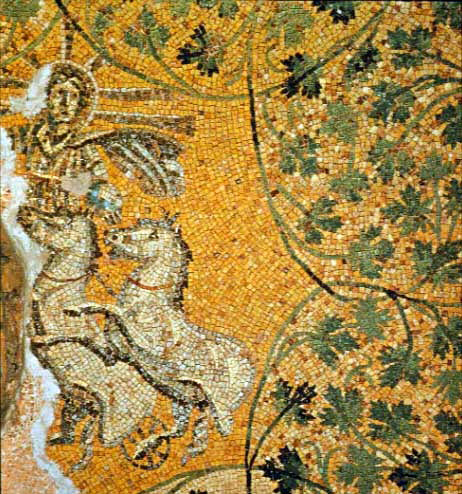Sixth Sunday of the Year B (15 Feb 2009)
Lv 13. 1-2,44-46; Ps 32; 1Co 10. 31-11.1; Mk 1. 40-45
Homily of Fr. Paul Panaretos, S.J.
Healed and United
Lv 13. 1-2,44-46; Ps 32; 1Co 10. 31-11.1; Mk 1. 40-45
Homily of Fr. Paul Panaretos, S.J.
Healed and United
Jesus continued on his healing move, as we heard in the gospel. Our distance from Jesus both in time and culture can distract us from his mission. The distance of time causes us to think about things in categories familiar to us. The distance of culture causes us to miss things important in one culture that may not carry the same importance in ours. I will return to Jesus and his healing mission after briefly considering distance in both time and culture.
Thursday, my mother said what many of us say about time: “Time moves so quickly, it’s hard to believe that many years have passed.” I had asked Mom if she remembered a priest, who taught me in college and attended my commencement at Yale. Fr. Berg had died; he was a year younger than my mother. I mentioned that he was a year younger than her to help her situate him and herself. She recalled him. That’s when she said, “Time moves so quickly, it’s hard to believe that many years have passed.”
When time separates us from Jesus and his culture, we tend to forget that people did not move as frenetically and frantically as we do. On the one hand, people could savor things more leisurely, and on the other hand, things that needed to change did so even more slowly.
For the Jewish people that meant they forgot God’s desire to welcome people with imperfections. I say imperfections deliberately because biblical leprosy was that and not an illness. The cause of the disease we think of when hear the word leprosy was only discovered in 1868 by a Gerhard Hansen. We hear leprosy, and you and I think of Hansen’s Disease, but that’s not biblical leprosy. The description of biblical leprosy as a white blotch which spread, is more like psoriasis./1/ Imperfect did not describe God, and thus, people with imperfections could not approach God. Worse, a person with biblical leprosy was required to dwell apart and live outside the camp.
 That was a death sentence to Mediterranean people. By culture they were gregarious and oriented to groups far more than we are. If our need for social interaction were a liquid, which would fill some quart jars, then Mediterranean peoples’ need would overflow them many times over. Even today in Mediterranean lands, people flock to central squares or to harbors in the cool of the evening to walk and socialize. For me it’s amazing and energizing to watch.
That was a death sentence to Mediterranean people. By culture they were gregarious and oriented to groups far more than we are. If our need for social interaction were a liquid, which would fill some quart jars, then Mediterranean peoples’ need would overflow them many times over. Even today in Mediterranean lands, people flock to central squares or to harbors in the cool of the evening to walk and socialize. For me it’s amazing and energizing to watch.In the days of scripture, though, people with imperfections were sentenced to die--denied interaction with others and forced to live outside the camp. For Jesus to touch those so shunned was an act of defiance difficult for you and me to appreciate. Jesus’ refusal to shun was the beginning of healing the leper in the gospel. The disciples of Jesus surely must have been amazed when Jesus stretched out his hand and touched [the leper]. Cleansed people moved into the city, while Jesus remained outside in deserted places, and people kept coming to him from everywhere. Jesus had chosen a place fruitful for ministering God’s healing and uniting desire.
Touch was Jesus’ powerful way to challenge his culture’s sentence upon people. It also made clear that as the Holy One of God, Jesus announced in ways long lost because of time and culture, God’s desires that people stand as one and that they help each other to welcome God not prevent each other from doing so. People kept coming to Jesus from everywhere because Jesus embodied for them the joy of salvation. Many would in their turn, like St. Paul, imitate Jesus, to help others to be saved.
In your daily 15 minutes with Jesus this week, compose yourself in the Trinity’s healing love. Ask the leper of the gospel to present you to Jesus with all the courage and homage with which that leper approached Jesus. Tell Jesus in your words what you do to isolate yourself from Jesus and from others. Beg Jesus to touch your wound with his wounds to make you whole. Close your prayer by saying slowly the Lord’s Prayer. Jesus gave us his prayer to remind us that God’s desires us to seek God’s healing so that we can help others to become whole.
_______________
1. Leviticus 13.24-27, verses not included by the Lectionary for the First Reading.
_____________________________________________
Wiki-image of Jesus depicted as the Sun with healing rays is in the public domain.
No comments:
Post a Comment